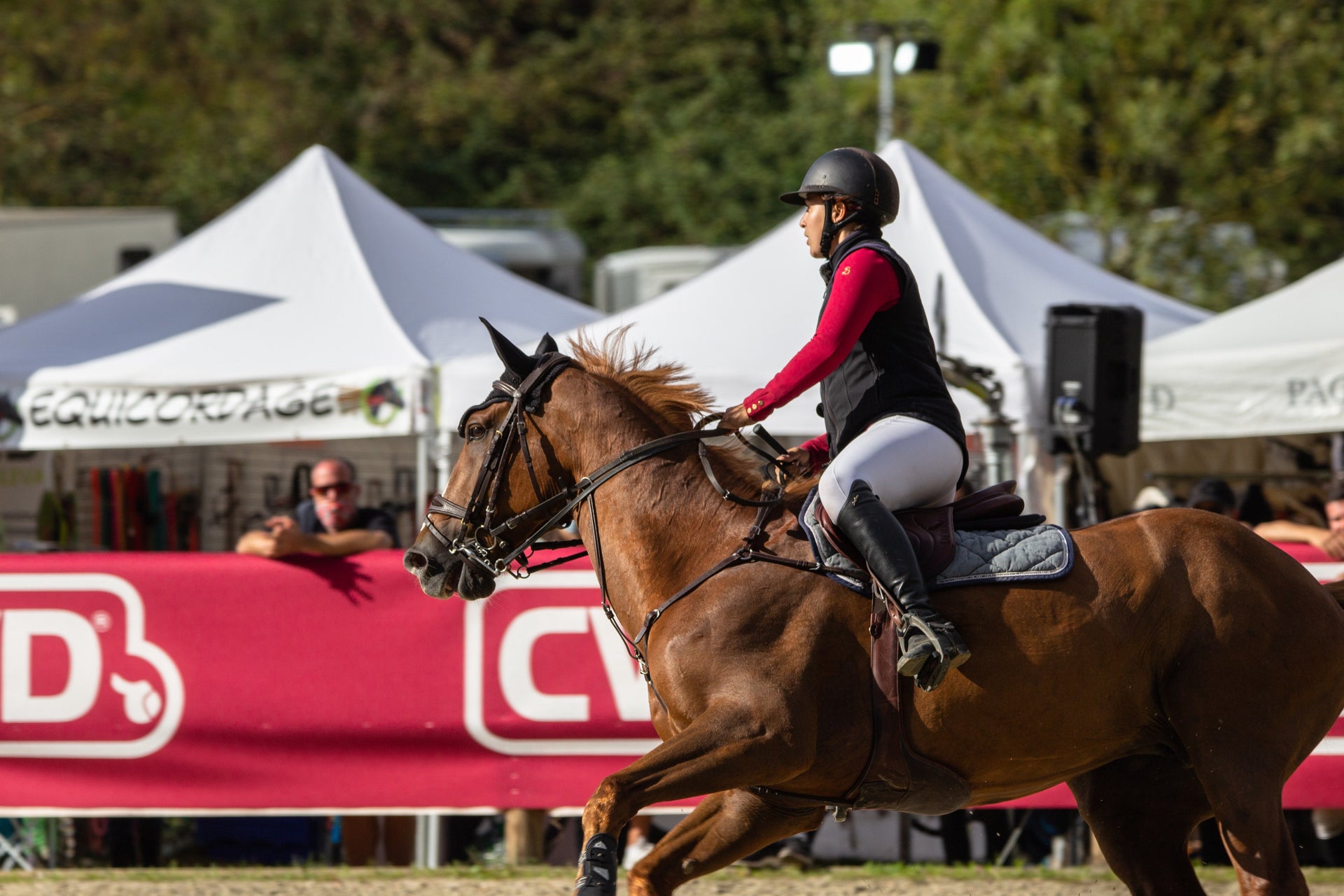How to calm a nervous horse
June 29, 2022

Published: June 2021 | Updated: June 2022
The horse nervous system can be divided into categories. There is the autonomic nervous system (ANS) and somatic nervous system (SNS). The SNS is voluntary and gives the horse the ability to control its muscles and movement. The ANS controls the involuntary actions that happen internally to keep the horse’s organs working.
The ANS is then divided into the parasympathetic and sympathetic nervous systems. The parasympathetic nervous system is the “rest and digest” phase and the sympathetic nervous system is the “fight, flight, or freeze” phase of the ANS.
During each of these phases different horse nervous system functions occur, causing certain physiological changes.
When a horse is calm and relaxed the parasympathetic nervous system focuses on resting and digestion. This looks like:
- Eyes: constricted
- Salivary glands: stimulated to aid digestion
- Heart: decreased normal heart rate
- Lungs: bronchoconstriction
- Stomach: digestion stimulated
- Liver: bile release stimulated
- Intestines: stimulated peristalsis and secretion
- Bladder: contracts
When a horse is stressed, scared, or excited, the sympathetic nervous system focuses on getting the horse physiologically prepared to deal with the stressor. This looks like:
- Eyes: dilated for maximal field of vision
- Salivary glands: salivation inhibited
- Heart: increased heart rate usually at normal levels but can exceed normal
- Lungs: bronchodilation to optimize oxygen intake
- Stomach: inhibited digestion
- Liver: glucose release is stimulated to increase the energy level for the horse
- Kidney: stimulate epinephrine and norepinephrine release
- Intestines: inhibited peristalsis and secretions
- Bladder: relaxes
What Does Nervous Horse Behavior Look Like?
Horses can appear nervous for many reasons, including severe work stress, environmental stressors (scared), or from pain. There are signs and body language to look out for that tell you your horse is in distress and nervous.
A lot of these signs stem from the horse’s sympathetic nervous system or pain response. Signs of a nervous horse include:
- Wide eyes (dilated pupils)
- Rolling eyes
- Head bobbing
- Restlessness/pacing/weaving
- Aggressive behavior; rearing, lunging, biting
- Flighty behavior
- Increased heart rate
- Increased respiratory rate
- Tail swatting
- Increased sweating from excess energy produced by body in a sympathetic state
- Shaking and trembling
- Pawing
How to Support the Nervous Horse
Calming a nervous or anxious horse can be achieved by different methods depending on the inciting cause. If you suspect that the horse is in pain, speak to your veterinarian to try and localize and treat it.
Severe work stress can produce physical pain or mental duress. If your horse gets stressed from training, try adding new changes to your routine. For example, if you are a barrel racer, go on trail rides. Get the horse out and let them have fun.
If your horse gets nervous because it appears scared of new things, it is smart to work on desensitization. This just means that you work on getting your horse used to balloons, banners, noises, and anything that they will come into contact with later that could be “scary.” Always be careful during the desensitization process to slowly introduce scary objects as to not stress the horse out further and keep both you and your horse safe.
Poor horse gut health and digestion can also lead to nervous behavior and in some cases excess nerves will negatively impact the horse digestive system, leading to a “chicken or the egg” type of cycle.
The performance horse has certain nutritional requirements that keep them healthy. Providing high-quality nutrition and functional ingredients can make a huge difference in keeping a horse in a state of equilibrium and balance.
Furthermore, B vitamins can act as a calming supplement for horses and help the nervous horse, especially thiamine.
FullBucket’s Athletic Formula supplement helps the horse reach its peak performance. This horse supplement includes probiotics, prebiotics, digestive enzymes, vitamins, and minerals to keep each body system working optimally.
Through diligent management practices, training and proper nutrition, your horse will be calm and relaxed in no time!
